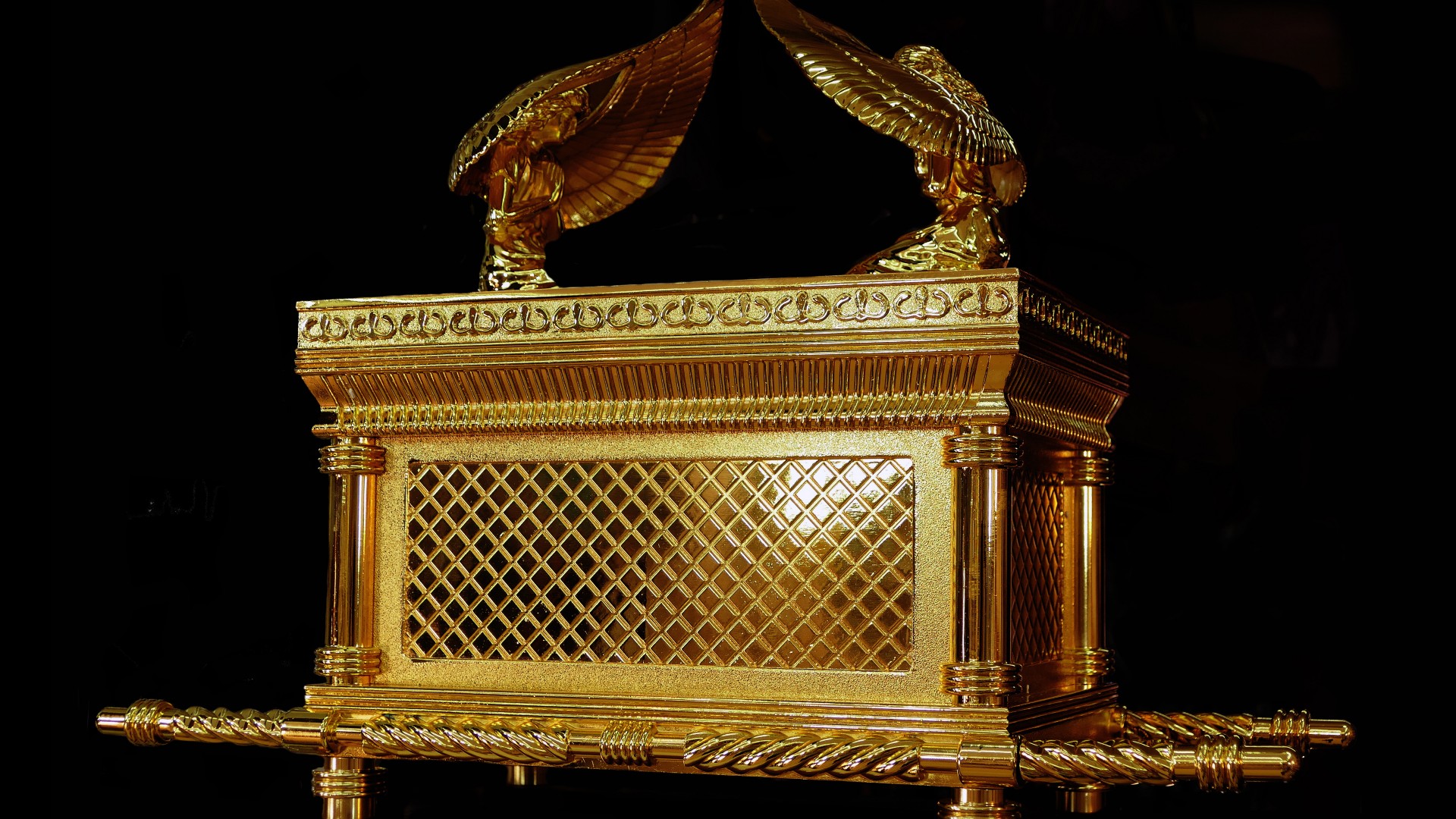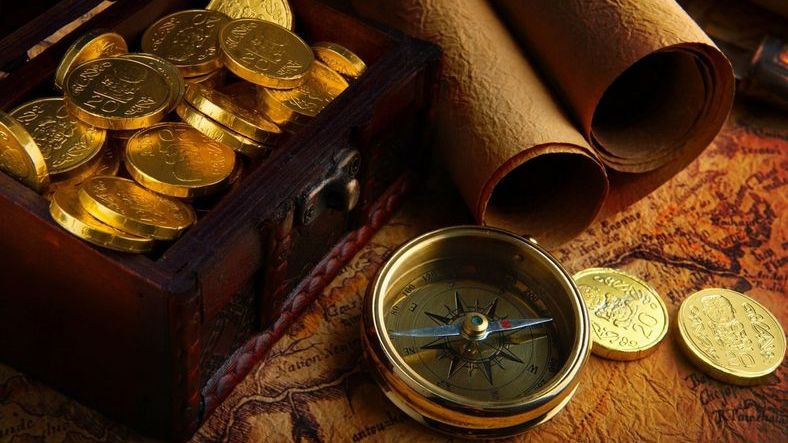Unraveling the Mysteries of Lost Treasures
Lost Treasures
Lost treasures have captured the imagination of people for centuries. The stories of these lost riches have inspired countless books, movies, and TV shows. But what are lost treasures, and where can they be found?
What is a lost treasure?
A lost treasure is a valuable object or collection of objects that has been hidden or lost and cannot be found. Lost treasures can be anything from gold and jewels to works of art and historical artifacts.
Where can lost treasures be found?
Lost treasures can be found in a variety of places, including:
- Buried in the ground
- Sunken in ships
- Hidden in caves
- Lost in jungles
- Locked in secret chambers
Why are lost treasures so fascinating?
There are many reasons why lost treasures are so fascinating. For one, they represent the possibility of finding great wealth. The idea of finding a buried treasure chest or a sunken ship full of gold is enough to make anyone's heart race.
Lost treasures are also a reminder of the past. They can tell us about different cultures and civilizations. For example, the discovery of the tomb of King Tutankhamun in Egypt gave us a wealth of information about ancient Egyptian culture.
Famous lost treasures
There are many famous lost treasures, including:
- The Ark of the Covenant
- The Holy Grail
- The lost city of Atlantis
- The treasure of the Sierra Madre
- The Amber Room
Lost treasures continue to fascinate people around the world. They represent the possibility of finding great wealth and a connection to the past. While some lost treasures may never be found, the search for them will continue to inspire and excite people for many years to come.
Lost Treasures: Why They Are Lost
Lost treasures have captured the imagination of people for centuries. The stories of these lost riches have inspired countless books, movies, and TV shows. But what are lost treasures, and why are they lost?
What is a lost treasure?
A lost treasure is a valuable object or collection of objects that has been hidden or lost and cannot be found. Lost treasures can be anything from gold and jewels to works of art and historical artifacts.
Why are lost treasures lost?
There are many reasons why lost treasures are lost. Some of the most common reasons include:
- Human error: People sometimes lose things, and sometimes they forget where they put them. This is especially true when it comes to valuable objects, which can be easily misplaced or stolen.
- Natural disasters: Natural disasters, such as earthquakes, floods, and hurricanes, can destroy or bury lost treasures.
- War: War can also lead to the loss of lost treasures. When armies loot and pillage, they often take valuable objects with them.
- Deliberate concealment: Sometimes, people deliberately conceal lost treasures. This might be done to protect the treasure from thieves or to keep it safe for future generations.
The fate of lost treasures
What happens to lost treasures? Some are eventually found, while others remain lost forever. Those that are found often end up in museums or private collections. However, some lost treasures are never found, and their fate remains a mystery.
The search for lost treasures
The search for lost treasures is a never-ending quest. People have been searching for lost treasures for centuries, and the search continues to this day. There are many reasons why people search for lost treasures, including:
- The hope of finding great wealth
- The desire to solve a mystery
- The thrill of the hunt
Lost treasures continue to fascinate people around the world. They represent the possibility of finding great wealth and a connection to the past. While some lost treasures may never be found, the search for them will continue to inspire and excite people for many years to come.
Famous Lost Treasures
Lost treasures have captured the imagination of people for centuries. The stories of these lost riches have inspired countless books, movies, and TV shows. But what are some of the most famous lost treasures, and what are the stories behind them?
1. The Ark of the Covenant
The Ark of the Covenant is a gold-plated chest that is said to contain the tablets of the Ten Commandments. According to the Bible, the Ark was built by Moses and used by the Israelites to carry the Ten Commandments. The Ark was last seen in the Temple of Jerusalem, which was destroyed by the Babylonians in 586 BC. The Ark's whereabouts have been unknown ever since.
2. The Holy Grail
The Holy Grail is a cup or chalice that is said to have been used by Jesus Christ at the Last Supper. According to legend, the Holy Grail has miraculous powers, including the ability to heal the sick and grant eternal life. The Holy Grail has been the subject of many quests throughout history, but it has never been found.
3. The Lost City of Atlantis
Atlantis is a mythical island that is said to have been located in the Atlantic Ocean. According to the Greek philosopher Plato, Atlantis was a utopian civilization that was destroyed by a natural disaster. The location of Atlantis has been a mystery for centuries, and there is no evidence to prove that it ever existed.
4. The Treasure of the Sierra Madre
The Treasure of the Sierra Madre is a fictional lost treasure that is featured in the 1948 film of the same name. The treasure is said to be located in the Sierra Madre Mountains of Mexico. In the film, a group of prospectors sets out to find the treasure, but they are ultimately killed by bandits.
5. The Amber Room
The Amber Room was a chamber that was decorated with panels of amber. It was created in Prussia in the 18th century and was considered to be a work of art. The Amber Room was lost during World War II, and its whereabouts are unknown.
These are just a few of the many famous lost treasures. The stories of these lost riches continue to fascinate people around the world. While some of these treasures may never be found, the search for them will continue to inspire and excite people for many years to come.

Treasure Hunters and Archaeologists
Treasure hunters and archaeologists are both interested in finding lost treasures. However, they have different motivations and methods.
Treasure hunters are primarily motivated by the prospect of finding financial gain. They use a variety of methods to find lost treasures, including metal detectors, ground-penetrating radar, and satellite imagery.
Archaeologists, on the other hand, are motivated by a desire to learn about the past. They use scientific methods to excavate and study lost treasures. Archaeologists are careful to preserve the context of their finds, so that they can learn as much as possible about the people who created them.
The methods used by treasure hunters and archaeologists
The methods used by treasure hunters and archaeologists vary depending on the type of treasure they are looking for. For example, treasure hunters looking for buried treasure might use metal detectors, while archaeologists looking for shipwrecks might use sonar.
The impact of treasure hunters and archaeologists
The impact of treasure hunters and archaeologists can be both positive and negative. Treasure hunters can damage or destroy archaeological sites, and they can also remove artifacts from their context, making it difficult to learn about the past.
However, archaeologists can also damage archaeological sites, and they can also remove artifacts from their context. In some cases, archaeologists have been accused of looting and selling artifacts on the black market.
The future of treasure hunting and archaeology
The future of treasure hunting and archaeology is uncertain. As technology advances, it will become easier for treasure hunters to find lost treasures. However, it will also become easier for archaeologists to study and preserve them.
It is important to find a balance between the interests of treasure hunters and archaeologists. Treasure hunters should be allowed to search for lost treasures, but they should also be required to respect archaeological sites and artifacts. Archaeologists should be allowed to study and preserve lost treasures, but they should also be required to share their findings with the public.
Conclusion
Treasure hunters and archaeologists are both interested in finding lost treasures. However, they have different motivations and methods. Treasure hunters are primarily motivated by the prospect of finding financial gain, while archaeologists are motivated by a desire to learn about the past.
The impact of treasure hunters and archaeologists can be both positive and negative. Treasure hunters can damage or destroy archaeological sites, and they can also remove artifacts from their context, making it difficult to learn about the past. However, archaeologists can also damage archaeological sites, and they can also remove artifacts from their context.
The future of treasure hunting and archaeology is uncertain. As technology advances, it will become easier for treasure hunters to find lost treasures. However, it will also become easier for archaeologists to study and preserve them.
It is important to find a balance between the interests of treasure hunters and archaeologists. Treasure hunters should be allowed to search for lost treasures, but they should also be required to respect archaeological sites and artifacts. Archaeologists should be allowed to study and preserve lost treasures, but they should also be required to share their findings with the public.






















































